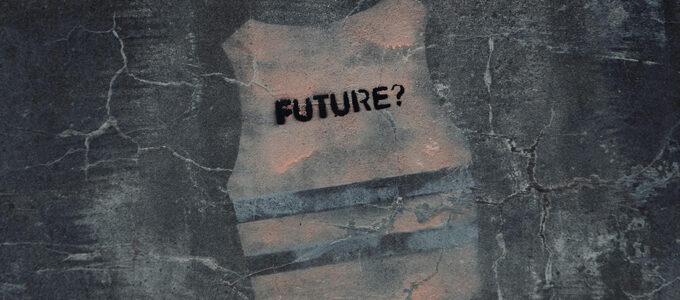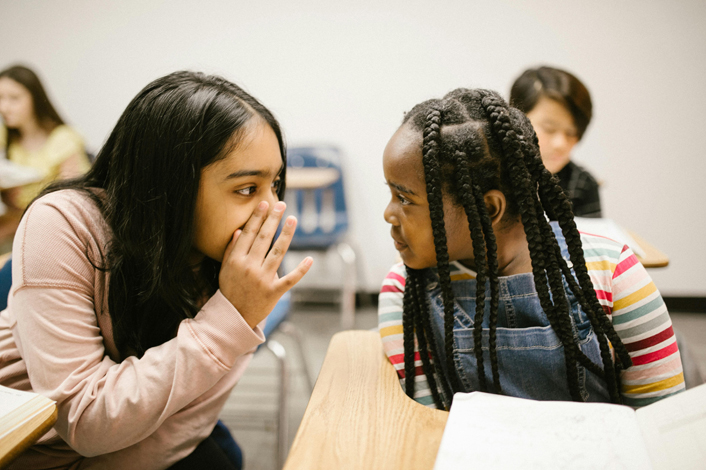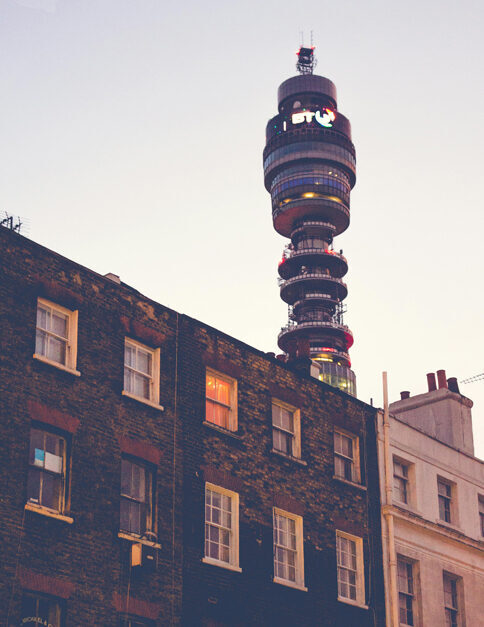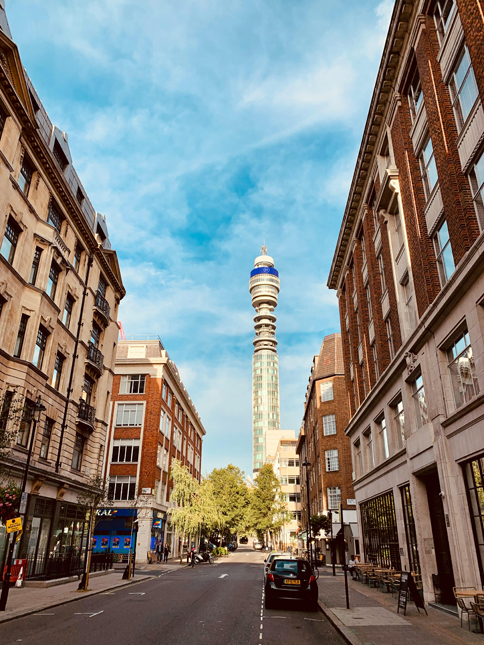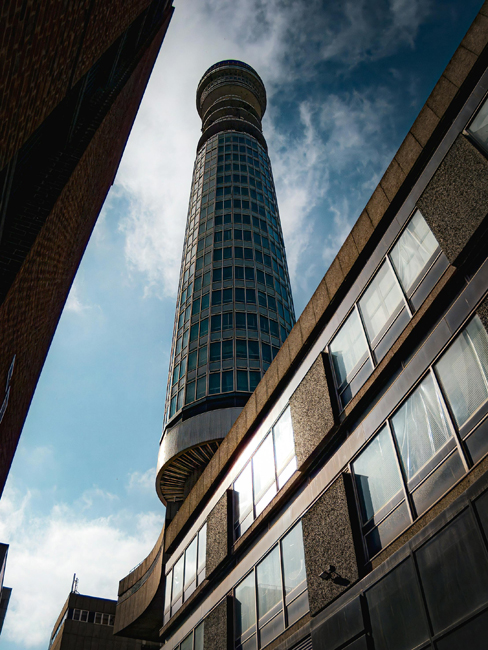The website is now https://fitzroviafutures.uk
Previous webpage below
Fitzrovia Futures 2055 is a locally run project designed to open up discussion on our possible futures.
Through workshops and storytelling, the project uses participatory foresight and applied science fiction to create a ‘level playing field’ for subject specialists and the local community to explore what’s possible and what’s preferable for Fitzrovia in the 2050s.
To date, a 1-day workshop has inspired 3 fictional stories about possible futures. And, there’s more to come so please join in and help us shape the future…
Feel free to let others know about this project:
We would like to thank the Fitzrovia Community Centre and all those who have participated so far: Abdiqani Ibrahim Osman; Ana Sun; Barbara Corr; Dr. Bradley Elliot; Prof. Catherine Loveday; Dr Christine Aicardi; David J. Phillips; Elijah Rosney; Eva Pascoe; Garry Hunter; Helena Oden; Dr Lewis Dartnell; Pam Fish; Penny Walker; Dr. Pooja Basnett; Dr. Rachel Benchekroun; Stephen Oram; and Prof. Tim Waterman.
Note: you can find out more about their involvement below.
Now – we want to hear your reactions to the stories and your ideas for the future of Fiztrovia.
The Stories
Appendix: Witness Interviews Transcripts
by Ana Sun [© Ana Sun]
(10 minute read)
Resident, Charlotte St (East)
You asked me what I saw: in the street below, a pale woman, pink hair flying, hurrying down from the Howland Street end. Pink fibre-grown jacket over one arm, pink bioplastic heels clacking on the asphalt, the BT Bladeless Turbine humming in the background behind her. One of the beautiful ones, nano-teched up to the nines; never ageing, never ill. A tall, blond man sauntered out from a restaurant, smiling, kissed her on one cheek. Then he guided her inside, smooth hand on her dainty elbow.
Didn’t think much of it then.
From my fifth-floor flat – too hot in summer, too cold in winter – Charlotte Street bustled into its evening self. Perfect people with perfect teeth packed into those overpriced wine bars and extravagant eateries. Hidden in top floors, buried in basements, we’re invisible to them. Us, with our damp-wrinkled skins, our dust-filled lungs.
I’ve got it better than Abby though – not her real name, ’course not. Her basement studio barely fits a bed. At least I can sleep in one room, work in the other.
A self-driving van parked itself at the corner of Goodge Street and vomited a swarm of drones, each clasping a parcel. They flitted past my window; I resisted throwing something at them. Not after what happened to Liam who once sent a drone crashing down below, killing one of the beautiful ones.
We never saw him again.
Stay out of sight, out of trouble, and the authorities let us live – let us die.
Across the street, through the window directly opposite mine, Jamal’s silhouette shifted, a soft dark ghost. No, not his real name. He, too, had just woken up. This time of day, the roof-level walkways adjoining our buildings threw criss-crossing shadows over the solar windowpanes and algae-brick veneer.
I rose from my bed, stretched out my sore limbs. My other room brims with machines beside a mound of clothes drenched in late-afternoon sunlight: seams to let out, holes to patch, socks to mend. New clothes to grow from old.
Like every day, I unlocked my front door first. I’d rather not be interrupted; Jamal would arrive later.
Time to get some work in – before the night begins.
What’s that? Call me Ilena. Not my real name.
Looks can be deceiving, but yes, I was born here – in this country.
The Victim, Marylebone
Are you recording this?
Yes, he’d chosen this restaurant for dinner. No complaints about the molecular menu nor the Fitzrovian fizz, but a disturbing full-sized drone hung in the main dining room as “fashionable décor”. My companion’s blond hair gleamed under searchlights typically used for sighting targets; my pink nails glinted.
Our virtual introduction had been friendly enough. Those green eyes which had transfixed me first in his profile image, then charmed me during our holo-meets, now arrested me across the table.
“No children?” he’d asked.
I shook my head. Why do they always insist on that question? He couldn’t have known I’d be double his age.
“Not met the right guy?”
“Not convinced by vat babies,” I replied, a little too sharply. “Never been keen on carrying a child.”
An eyebrow danced up. “Some women seem to like it.”
Keeping his eyes on mine, he ran a finger around the rim of my glass, making it sing.
My spine tingled. “Sounds like you’ve fathered a few.”
“Only by proxy.” He lifted his glass for a toast, a broad grin creeping across his handsome face. “To making it past the algorithm.”
I raised my glass to his, smiled.
Memories got a bit vague after that. Woke up in the hospital – you knew what happened.
You have other witnesses, don’t you?
Resident, Charlotte St (West)
Like she probably told you: every day, I take the rooftop passage across to Ilena’s.
No, she didn’t say what she saw, not then.
As usual, the rattle of her sewing machine echoed down the corridor. I opened the door gently; she hates being interrupted. The day’s leftover sun glanced off her dark hair, the mush lamp bathed her olive skin in an earthy glow. Once, we’d thought of moving in together, but this arrangement suits us fine.
I filled the kettle with filtered rainwater, made us cups of nettle tea, sketched designs for a storm-resilient rooftop planting system, and waited for her to finish.
We have a good routine by now.
“That time already?” She got up, greeted me with an embrace. I kissed her forehead, her cheek, her lips.
“You work too hard,” I said. “Why not teach the others to fix their own clothes?”
A generous smile triumphed on her small face. “Where would I get my nettle tea and my veg basket from, if I did that?”
She gestured at two bulging bags of clothing sandwiched between the bedroom and the front door. I hefted one on each shoulder; we headed out. Behind me, she clicked the door shut.
No, I couldn’t see the street from where I was.
After that? We climbed up to the rooftops, ready for the night to begin.
Resident, Whitfield St
What was I doing that night? Same as always – running late.
By then, the fat moon hung low on the horizon; the chill stung my skin. My Ma – bless her soul – told me there’d been four seasons in her childhood, but now I only count two: the winter, the summer, and rushed weeks of transition in between. Once, I thought she’d described the Far East where she was born, but no – she meant here.
I opted for the quicker route from home via the rooftop walkways. Got carried away blending tonight’s orders for teas. I use herbs grown in my outside stairwell – the only perk of a basement flat – and early-season flowers from the communal food forest. You know the one on the roof near Great Portland and Mortimer? Don’s been running it since he moved here.
Couldn’t stop myself from glancing down into Great Titchfield; strange how our lives are so different from theirs, those perfect ones. They have more of everything, what do they talk about down there? Up on the rooftops where we usually gather, we obsess about food, the weather. If you live in a basement like me – how to fight the rising damp; if you’re on the top floor like Ilena – how to manage the never-ending dust.
Every evening, we convene somewhere; someone always cooks, someone always plays an instrument – we’d eat, dance, chatter, exchange services or goods.
We’d love, laugh.
Funny, I’d never seen the perfect people gather in large groups; only in twos, threes, sometimes a lone single soul. Jamal said when their children become old enough, they get sent away – no idea where.
Must be sad.
That night, heady music and aroma of good cooking reached me even before I arrived at the rooftop of the building that houses artists’ studios. I spotted Jamal first, standing tall among the partying crowd.
“Abby!” Ilena waved me over.
For some reason, at that moment, I gazed down into the side street below.
A smudge of something pink, near the municipal bins.
No, not something – someone.
The Accused, Fitzroy Square
You have no evidence.
Yes, we had dinner, she’d agreed to it. After a first fizz, before the pigeon roast arrived, her face paled and she excused herself.
“Wait,” I’d said. “Let me take you home.”
There had been some promise and I didn’t want to let her go just like that.
Somewhere at the back of my mind, my mother’s voice chided me – a voice I’d not heard since I was five.
I smothered it.
No, I didn’t follow her, that’d be creepy. You don’t think I’d take rejection gracefully?
After that? I walked home to Fitzroy Square, under a fleet of drones buzzing overhead. In the moonlight, those roof-height beams between buildings cast a shadowy mesh over Conway Street. Never knew what they were for. To stop the drones from escaping?
Once home, I deleted her profile from my list.
Oh, she was drugged?
I say again, you have no evidence.
Resident, undisclosed
We don’t want no trouble, you understand. Not after what happened to Liam.
“Don’t touch her,” I’d said to the others. “They mustn’t trace you.”
Jamal’s hands clenched into fists. Abby had wrapped an arm around Ilena, who couldn’t stop sobbing.
“Saw her arriving,” Ilena coughed out her words, “met a man at a restaurant, just under Jamal’s.”
“We can’t leave her here!” Abby’s voice – tight, anxious.
I had to be the one to stay calm. “I called the ambulance. Come, let’s go.”
“How long ago?” demanded Jamal.
“Five.”
“With what?”
“Her wrist comm.”
Jamal’s eyes widened but at that moment a siren blared around the corner.
The ambulance. Unfolding out of its doors, a pair of paramedic androids.
We melted back into the shadows, up to the rooftops, watched them take her away.
“Don,” Jamal hissed at me.
“What?”
“You cleaned your prints off her comm, right?”
I didn’t answer; didn’t want him to worry.
Why would we have done it? I’m no Liam.
Only garden dirt under my fingernails.
Look – my hands, they’re clean.
— END —
A Tale for a Tourist
by Penny Walker [© Penny Walker]
(10 minute read)
You’re a tourist? Trouble with your wifi? Round here, you need to get on Fitznet. I can trade you an access voucher, on the sly. Fitzcoin please. Zap me here. I had a bit of a problem with the wifi myself, the other day.
See these grapes? My Mum’s papa brought vine cuttings across the sea with him, and now we have them all over Fitzrovia and Mum makes raisins. And I like to sneak a handful and throw them at Woolfies: that hardman gang from Bloomsbury, across the droneway. They hate it!
Anyway, Mum was pretty cross, so to make it up to her I took old Grandpops out for the afternoon. He’s my Dad’s Grandad and he’s a bit wobbly but I traded a Fitzcoin voucher for a pedicab and I cycled him round his old haunts: The Bricklayers, the Chapel, Fitzroy Square.
He may not be able to walk, but he can still fly a drone, like a champion. My family are all ace droners. One of Mum’s jobs now is piloting a delivery drone. Grandpops is teaching me. Not that I need it really. I’m pretty shady already. I can do the mini-drone circuit: high round the Tower, under the Conway arch, thread the needle through Naomi’s View and land on the head of General Miranda. Top droning.
Anyway, we had a nice time – even if Grandpops forgot it was just him and me, and gave me the whole tourist jabber: Blue Plaques and squatters and twentieth century history lesson. But fair dos, most weeks he still earns a few Fitzcoin vouchers in tips when he shows tourists like you his punk tattoos, or sits in Crabtree orchard and makes up nonsense. Mum calls it his ‘anecdotage’, ha ha. I know for a fact those apple trees weren’t planted until he was well into his sixties. He never went scrumping. It was Mum’s lot who started that up again.
Anyway, back in his room, he whispered:
“That last lot of Fitzcoin I got from the tourists?”
“Yeah?”
“I spent it on a reminiscence and nostalgia add-on for Fitz.”
Fitz is his robocarer. It’s a pretty basic Mark Two. The Company don’t support it these days, but KB, Mum’s friend, has got a space in the Boulting Workshops and does repairs and upgrades on the sly.
“Nice,” I said. “Shady.”
Grandpops did his chuckle that’s nearly a cough.
He said, “we were going through my old vinyls and then we watched some Buzzcocks and one thing led to another and I taught Fitz to pogo. Consequently…” – he said it slowly, as if it was nothing to do with him – “… con-se-quent-ly, Fitz knackered its knee.”
I looked over and Fitz was leant in the corner, soaking up the sunlight through its PV skin, one leg hanging wrong. I could see why he didn’t want Mum to find out. The Company isn’t going to supply a new one, and there’s no way we can afford one of our own. You know what the old lovelies are like. He looked at me with his big crinkly eyes and I promised him I’d help. But I don’t fancy clearing up after Grandpops and changing his unmentionables. I had a better idea.
So next day, bright and early, I went down to KB’s workshop, asked him if he could make a new knee for Fitz.
He said “no problem! In principle.”
The spanner in the works being that while he had the 3D printer and the Mark Two files, he was nearly out of his bioplastic feedstock. There’s been a run on valves for water cisterns or something.
But I’m a well-networked kiddo, so I stopped by our block’s gardens to pick some grapes and took them to Stellar. Stellar in the cellar. She farms special strains of microorganisms and uses them to brew plastic in the basement under Clipstone Mews, next to where the mushroom farm is. She was glad of the fresh fruit and said she’d be happy to help me and KB out, but she was running short herself. The Company has a new contract with the Regent’s Park Growers Coop and all the food waste is being diverted to compost. Bioplastic micro-breweries are feeling the squeeze. We ate the grapes and put the stalks and pips in her inbox.
Stellar said she’d been trying to persuade the Company to let her harvest fatbergs in the sewers, but it’s no go. Officially.
She gave me a look. Now I love Grandpops, but I don’t fancy those drains. There had to be another way.
I wandered over to the edge hedge next to Tottenham Court Droneway. It’s a calm place, good for thinking. Full of pigeons. They stuff themselves over in Bloomsbury and come back here for a sleep, and to escape the Woolfies. Mum doesn’t like me going too close to the border, but it’s fine. The Neighbourhood Watchers are on all the gates and it’s been ages since any Woolfies have broken in.
We complain about the Company, and we’re right to. But at least they organise things here. There’s no food waste collections at all in Bloomsbury. Rich pickings, actually, I reckoned, if you get in and out without being caught.
When I got home, Mum was just setting off for her shift with the Neighbourhood Watchers. “Look after Grandpops,” she said. And I was. Kind of.
I told him my plan, and he hacked me in to Mum’s drone id. He let me wear his precious black leathers for camouflage and protection, although honestly, they’re cut for a larger bod. Stellar had leant me some good gloves. And off I went, for a bit of sly scrap scrumping.
I know all the passages and walkways, so getting to the edge hedge without being seen by the patrol was easy. Slipping out through a gap was harder, it’s a proper tangle, and fair dos, the leathers did help against the brambles. Crossing the droneway was a nightmare, with the autovans and delivery drones, beeping “caution, northbound drone approaching, beep beep”.
Anyway, I got across and I got the drone to ace a shady leap over the main drag. I didn’t have to look far to find heaps of rubbish. Rotten food, poo bags, pigeon bones. Not clean like it is here. I looked around for Woolfies. All clear. So I landed the drone, gloves on and stuffed its belly. I thought ‘this is easy’. I’d started to dream of setting up my own biowaste side-line, earning my own Fitzcoins. I was getting ready to launch the drone and cross back, when a shape stepped out of the shadows. A lone Woolfie. One I’d hit with raisins a few days before.
“Fitzkid! What you doing here?” he said. His teeth were modded, sharp.
“Just taking a delivery of food to my Grandpops.”
“Let’s have a look.”
I warned him that it was a bit overripe, but he opened the door and put his face right close.
He proper yowled! “Poarr! That’s rank!”
I couldn’t disagree.
He slammed the door and said, “still, nice drone. I’ll have that.”
Now I was sweating in my leather pants! Mum would lose her trade. I’d be toast. I had to think fast.
I pulled out the remote, jabbed the pin, and the control lit up. But I was right on the edge of Fitznet, barely any signal. You know what it’s like. I reached as high as I could, to catch the line of sight from the tower, and said “Fitznet! Move drone up.” Nothing.
I waved the remote, stretched up, said it again.
“Moving drone up,” it said back, and the drone rose. “Beep beep, drone moving up.” The relief!
The drone was almost out of danger but the Woolfie jumped up and caught one of its legs. He couldn’t pull it down, but it wasn’t gaining any height either. The Woolfie was going to get his other hand onto it and then it would be game over.
So I said, “Fitznet! Open delivery door.”
“Opening delivery door.”
The whole stinking lot fell out into his face. He let go and the drone flew upwards.
“Fitznet! Fly drone to home.”
“Flying drone to home.”
And off it went, empty and considerably dirtier than when I’d borrowed it, but free. The Woolfie scarpered, spitting and shaking rotten bits off himself. He might be back any minute so there was nothing for it: I took off Grandpops’s leather jacket and scooped the horrible mess into it, zipped it up and carried it, like some nightmare Red Riding Hood.
I took my rank harvest to Stellar. It wasn’t nearly enough but she was impressed, and swapped it for bioplastic granules, which I took to KB, who printed out a new knee and then came with me to insert it. Fitz is back to full health, so Grandpops has instructed it to help me clean his jacket and polish up the drone before Mum’s next shift.
Speaking of which… I’d better get on. A tip for my story? Thank you very much. Zap here.
— END —
The History Bricks
by Stephen Oram [© Stephen Oram]
(10 minute read)
“Woah, look at that,” says the young woman tucking into her breakfast next to me.
She stops and points to the centre of our Tower’s circular café, to Atlas, the living biotech replica of Fitzrovia. A turquoise ridge is forming along its streets, as a warning that down below in the real-world a problem is emerging.
“Doesn’t look good.” I say, offering my hand. “Richard.”
“Mars.”
“Mars? I like it.”
“Late ’30s space craze. But you? Richard, but never Dick?” she says, cheekily.
“You got it. The 80s.”
She grins. “Soooo last century.”
I return her grin and point at the turquoise ridge. “Soooo… What the dickens workhouse is that?”
She pinches her eyebrow. “Well whatever it is, it’s not normal. That’s a certain.”
By now everyone has stopped eating and is staring at the growing ridge and commenting on the foul-smelling gas it’s emitting. Definitely abnormal.
Atlas’s announcement cuts through their low anxious muttering. “Non-typical behaviour of tourists detected. We have concerns.”
Shockingly, the assembled fitzrovians abandon their half-eaten breakfasts and rush to the edges of the room.
“With me,” says Mars.
“What about our food scarcity?”
With no hint of a reply, she drags me across to a window of the revolving room.
Fitzrovia’s higgledy-piggledyroofs, chimneys and narrow streets are spread out below. Our hedge-borders line the central reservation of Euston Rd, the far side of Tottenham Court Road, the closest edge of Oxford Street and the wind turbines dotted down the middle of Portland Place and into Regent Street.
She notices me looking. “I love those tall turbines,” she says. “So sleek.”
I chuckle at her enthusiasm. “That’s ‘cos they have no blades. Most of our energy though. Co-funded with Marylebone, not that they’ll ever share with us.”
She shrugs. “We don’t need anyone else. Their loss.”
I echo her shrug. This is our domain, our protected village. Sure, we attract the wealthy tourists who want to observe the artists and artisans of Fitzrovia, but it’s ours. You only have to listen to the oral recordings of our heritage in the history bricks to understand that.
A quick glimpse at Atlas shows that the hedges are all intact and behaving as we’d expect. So what is this pungent ridge that has now reached the Kings Arms Co-op on Riding House Street? If they do anything that ruins the beer those wonderful brewers concoct, they’ll regret it.
I glance at the abandoned breakfast and tell her. “It’d better not be heading for Charlotte Street’s communal kitchens. At my age, a good meal and a good pint are essentials.”
She smiles.
“Attack Margaret Street if they want, with its VR skin makers and production houses for the Oxford Street experience. Hate it.”
With a vigorous shake of her head, she joins in. “They’d better stay away from the artists and the menders fixing our clothes.”
Atlas interrupts: “Based on behavioural patterns, there is a 90% likelihood of hostile intruders attempting to imitate tourists to steal or destroy. Entered from Oxford Circus after alighting the tram and have walked to Foley Street. Proceeding slowly. Immediate interception recommended.”
People are pointing at Atlas and then to the streets below, shouting out the names of buildings and businesses that must be protected.
“They’re heading for the chapel,” shouts one.
“No, they’ll double back and hit the Beeb,” declares another.
“Let’s do something,” says Mars next to me, fiddling with her wrist screen. I think she’s checking my credibility rating.
“Ah!” Heads turn. “George Orwell statue.”
There’s a loud groan from at least half of the room.
“All Souls,” shouts someone.
Another voice adds, “The school. All Souls School. The museum.”
“The gardens,” shouts Dust, a teenager I play chess with.
“And the mushroom farm underneath,” adds his friend.
“Mushrooms for the Soho trippy trade is genius,” I mutter. “We grow great stuff, thanks to the city’s gift of the old transport police—”
“Focus,” says Mars, without looking at me.
“You know Algae was a new thing once? Suddenly, streetlamps of algae pods lit up the neighbourhood.”
She clenches her jaw.
My neighbour Oksana calls out. “The waste unit under Holcroft Court.”
“You’re right,” shouts Mars in my ear. “They’re after the bioplastic printer.”
She might have a point. The 3D printer under Holcroft that turns food waste into useable objects could be a target.
“Bioplastic is—”
“I know. I know,” I say. “Precious—”
“Our research centres,” interrupts the man next to me.
I agree and say so. “It has to be our research. It’s the most valuable thing we have.”
Atlas announces: “Concern is critical.”
My friend Harry points at the turquoise ridge. “Look, they’re heading towards one of the university buildings on Hanson Street.”
A few grumbles from those who don’t favour this aspect of our economy, but the room quietens as the stink notches up another level.
Mars grabs my arm. “Blah, blah, blah. With me,” she says.
Gagging on the stink, I happily leave my unfinished breakfast behind. It’s wasteful but it’ll get used. Maybe as that new bath tap?
As she grips my hand tight and pulls me into the lift, I can’t help chanting the old slogan: “Agile and wise, old and young. Mix ‘em up and get the one.”
The high-speed lift down to the street doesn’t give us any time to plan.
“Quick, check Atlas,” I shout, as we take the steps down to the pavement, two at a time.
“Still on Foley Street,” she shouts back, tucking her screen back into her pocket. “Going very slowly.”
We run.
At the junction, we wait for a couple of hydrogen scooters to pass and then we sprint across. “Oh! The brain barn,” I say, through gasps of breath.
“The what?”
“The neuroscience centre. Neurotech. Lucrative stuff.”
“Let’s deal with these imposters,” she says, with an enviable edge.
“Wonderful energy Mars, but less haste might be wise.”
We turn on to Foley Street. A gaggle of ten people my age are gathered around the history bricks in what was the back wall of the school and is now our museum. We walk briskly towards them.
“Not too fast,” I say. “We don’t want to scare them off.”
Mars coughs an exaggerated cough. “Isn’t that exactly what we do want to do?”
“When we know why they’re here.”
“Coward,” she whispers.
“Reckless youth,” I whisper back.
“Why the museum?” she asks. “Learn our history?”
I point, not caring about being seen. “Look at them. Their clothes. Expensive. Quasi country clothes.”
“And?”
“Marylebone, if ever I saw them.”
Cautiously, we approach. They’re engrossed. Maybe Mars is right and they want to know about our past.
“We need to get close enough to hear what they’re listening to,” I tell her.
She grabs my hand and we edge nearer, seemingly taking a leisurely morning stroll. We’d be more convincing with a dog.
They’re not listening, they’re talking, taking it in turn to repeat the same sentence. “In the 2037 charter renewal for the BBC, the corporation stated that it was based in Fitzrovia, an assertion that is believed but false.”
I pull Mars to a halt. “They’re altering the history bricks, infiltrating them with their own version.” I sigh. “Does it never end?”
“What?” she asks, her breathing no longer calm.
“The history bricks – designed to record and play back the oral history of Fitzrovia—”
“I know that. What never ends?”
“War over territory. The battle for the turbines. That’s what this is all about. Access to local energy.”
She snatches her hand away. “That’s mad. I’ll stop them.”
She lurches forward.
“No,” I shout.
“Yes,” she shouts back. “I can’t stand this.”
“It’s easy to discredit them.”
“We don’t have time.”
She’s about to get into a lot of trouble. I grab her. “Believe me. Listen to the past twenty years and you’ll find plenty of times when this raises its ugly head.”
“What do we do? Solar’s not enough. Without turbines, we’re done. End of Fitzrovia.”
“No. I’ll message everyone – to come and drown the Marylebone assertions with our own.”
“Will it work?” She’s barely catching her breath.
“That’s a certain, and with no risk of you getting hurt or prosecuted by the city for terrorising the tourists.”
“Let me—”
I hold her back. The pavement adverts aimed at tourists are starting to fade and the artisan signs in windows are now barely visible.
“Mars, we need to be quick. Power’s already being diverted. It’s up to us until the others arrive. The longer we take, the more difficult it’ll be.”
She stares at me. “Why do the bricks believe them if they’re not from here?”
“Bricks don’t know.”
She snorts. “Idiots.”
“If someone has ever been a Great Portland Street resident—”
“Atlas knows they’re imposters.”
“But the bricks and Atlas are separate. For security reasons.”
“Madness. It can’t be as easy as you say.”
“It is if you know what to do.” I tap my temple. “Wise is what works.”
She double checks my credibility rating on her screen and the relief in her eyes is magical. She believes me. She knows we’re safe.
— END —
Tell us your views
How much do you agree or disagree with the following statements?
(function(t,e,s,n){var o,a,c;t.SMCX=t.SMCX||[],e.getElementById(n)||(o=e.getElementsByTagName(s),a=o[o.length-1],c=e.createElement(s),c.type=”text/javascript”,c.async=!0,c.id=n,c.src=”https://widget.surveymonkey.com/collect/website/js/tRaiETqnLgj758hTBazgdyfIJJHq8BboEwsa4AJDy4K_2FNzQoJKQRleL1ube5PcPX.js”,a.parentNode.insertBefore(c,a))})(window,document,”script”,”smcx-sdk”); Create your own user feedback surveyJoin in with the project
If you are keen to know more and/or are keen to contribute to the project in a workshop, at an event, or financially then please drop us a line using the form below.
Your message has been sent
More about the project:
Why
Often community involvement in future related decisions are around immediate and specific issues. By using applied science fiction as a tool in participatory foresight, this project is looking at a 30-year horizon through a fictional lens, enabling those who take part to think in everyday terms about what and how they want their local area to become in the future, grounded in the plausibility that the subject specialists bring to the process.
What
The project is made up of different stages, gradually increasing its reach at each stage.
Six local specialists were recruited, covering future looking themes, for example: sustainable biotechnology such as algae and bioplastics, retail and the high street, food production, urban landscape and architecture, biology of ageing, and food security.
Five people from the local community joined the project – a mix of those who live and work in the area.
These eleven people joined the project’s applied science fiction practitioner (Stephen Oram) and the participatory foresight social scientist (Dr. Christine Aicardi) in a workshop to discuss the potential futures. The subject specialists brought their particular knowledge to the discussion and the local residents brought their expert knowledge and perspective of the local area to the discussion. Through creating a ‘level playing field’ between all these experts, the discussion was both informed and holistic.
Leading on from the workshop, three short stories (10 minutes each in length) were written by the project authors (Ana Sun, Penny Walker and Stephen Oram), in collaboration with Christine and in consultation with the workshop attendees. These stories, designed to highlight some of the pluses and minuses of these possible futures, are being used in interactive public events to open the conversation up more widely. The workshop attendees are encouraged to attend public events and engage in the conversation.
This approach has been tried and tested by Stephen and Christine over the past 9 years, particularly in projects with: Furtherfield’s Citizen Sci-fi to celebrate 150 years of Finsbury Park; with the thinktank Cybersalon; and multiple projects with King’s College London. Each project has its own ‘flavour’ but have similar underpinning principles.
Additionally, documenting the process from beginning to end is important for transparency and for other areas to use as a guide in their localities i.e. the process, but also to give sense of what was discussed, what was important, public reaction etc.
When
April 2025 onwards (the first public event is 10 August at the Fitzrovia Fete, Foley Street.)
Who (so far)
The subject specialists are: Dr. Bradley Elliot, Reader in Ageing Physiology (University of Westminster); Prof. Catherine Loveday (University of Westminster); Eva Pascoe (The Retail Practice); Dr. Pooja Basnett and Abdiqani Ibrahim Osman (The Cavendish Living Lab); Dr. Rachel Benchekroun (UCL); and Prof. Tim Waterman (Bartlett School of Architecture).
The fitzrovians from the local community are: Barbara Corr; David J. Phillips; Garry Hunter FRGS; Helena Oden; and Pam Fish.
Some of our participants are able to think about fitzrovia from more than one viewpoint. For example, Tim Waterman is also a long-term resident and Garry Hunter is Arts Advisor to the Institute for Healthy Urban Living at Westminster University.
Alongside the participants, the following people are leading, advising or supporting the project: The Fitzrovia Community Centre; Dr Lewis Dartnell, professor of science communication at the University of Westminster; Ana Sun, speculative fiction author; Penny Walker, author; Dr Christine Aicardi, Senior Research Fellow, King’s College London and specialist in participatory foresight; Stephen Oram, social science fiction author and applied science fiction practitioner; and Elijah Rosney, videographer.
Legacy
Ideally, this project alongside the previous Finsbury Park project will provide a template and a proof of concept for similar projects around the UK, all with their own local flavour but within the broad parameters devised through the course of this project. Once established, this methodology can be rolled out in any area of any country.

